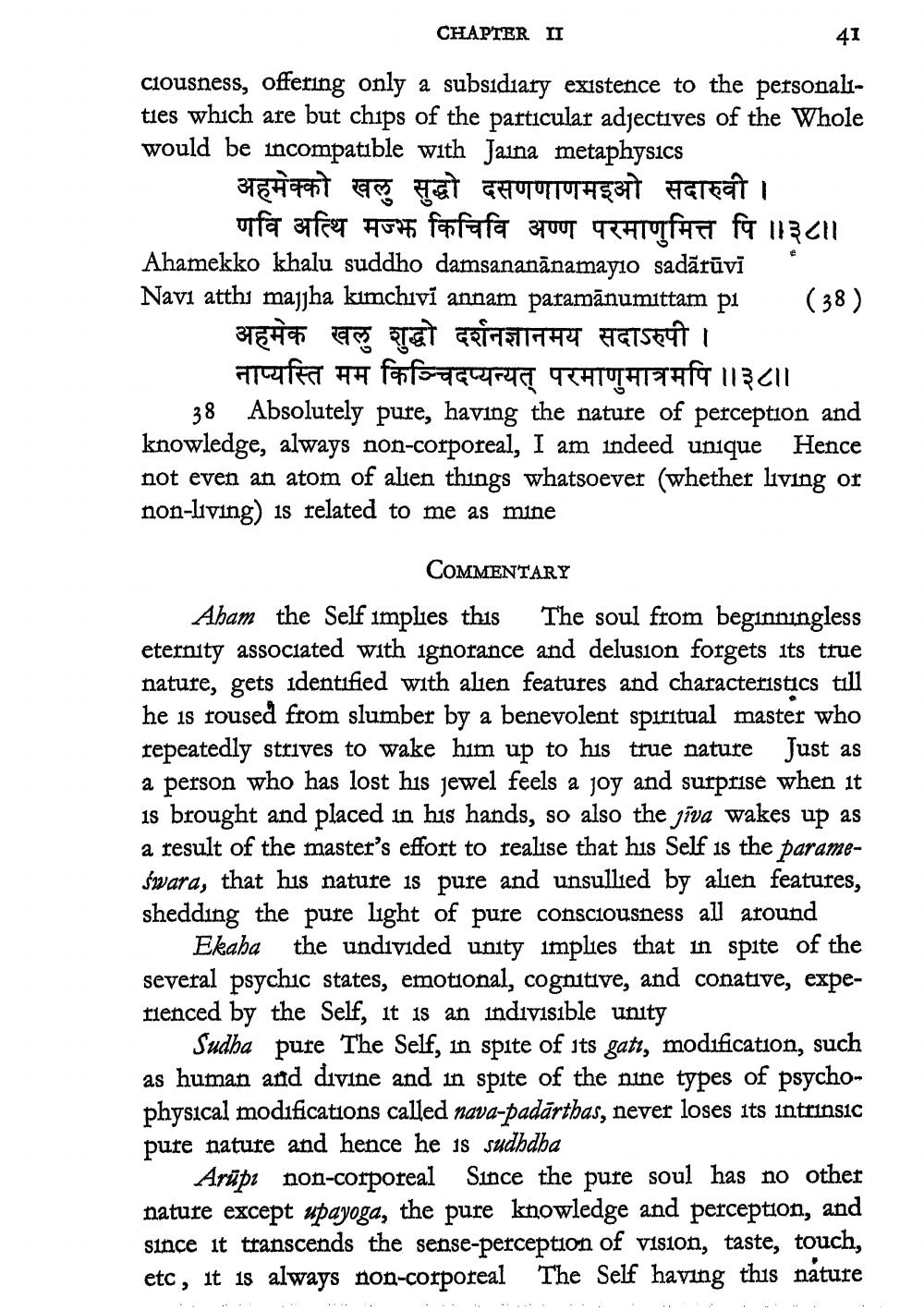________________
CHAPTER II
41
ciousness, offering only a subsidiary existence to the personalities which are but chips of the particular adjectives of the Whole would be incompatible with Jaina metaphysics
अहमेक्को खलु सुद्धो दसणणाणमइओ सदारुवी।
णवि अस्थि मज्झ किचिवि अण्ण परमाणुमित्त पि ॥३८॥ Ahamekko khalu suddho damsananānamayio sadārūvio Navi atthi majjha kimchivi annam paramānumittam p1 (38)
अहमेक खलु शुद्धो दर्शनज्ञानमय सदाऽरुपी ।
नाप्यस्ति मम किञ्चिदप्यन्यत् परमाणुमात्रमपि ॥३८॥ 38 Absolutely pure, having the nature of perception and knowledge, always non-corporeal, I am indeed unique Hence not even an atom of alien things whatsoever (whether living or non-living) is related to me as mine
COMMENTARY Aham the Self implies this The soul from beginningless eternity associated with ignorance and delusion forgets its true nature, gets identified with alien features and characteristics till he is roused from slumber by a benevolent spiritual master who repeatedly strives to wake him up to his true nature Just as a person who has lost his jewel feels a joy and surprise when it is brought and placed in his hands, so also the jiva wakes up as a result of the master's effort to realise that his Self is the parameswara, that his nature is pure and unsullied by alien features, shedding the pure light of pure consciousness all around
Ekaha the undivided unity implies that in spite of the several psychic states, emotional, cognitive, and conative, experienced by the Self, it is an indivisible unity
Sudha pure The Self, in spite of its gati, modification, such as human and divine and in spite of the nine types of psychophysical modifications called nava-padārthas, never loses its intrinsic pure nature and hence he is sudhdha
Arūpi non-corporeal Since the pure soul has no other nature except upayoga, the pure knowledge and perception, and since it transcends the sense-perception of vision, taste, touch, etc, it is always non-corporeal The Self having this nature




